
Arquivo para a ‘Social Network’ Categoria
Plurality, polyphony and tonality
Although Byung Chul Han in his reading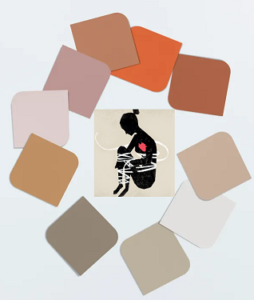 of Heidegger and his affective tonality, describes plural democracy only in passing, when commenting on “polyphony” that Derrida opposing “totality does not exclude tonality. The juxtaposition of notes would be equivalent to the monotony of a disturbed heart, which would certainly be distinct from the atonal heart” (Han, 2023, pg. 16).
of Heidegger and his affective tonality, describes plural democracy only in passing, when commenting on “polyphony” that Derrida opposing “totality does not exclude tonality. The juxtaposition of notes would be equivalent to the monotony of a disturbed heart, which would certainly be distinct from the atonal heart” (Han, 2023, pg. 16).
To better develop the question of the state and its plurality, Heidegger approaches the “art of living… limited where the world begins to be populated with the hearts of others, where we no longer find ourselves in proximity to the aesthetic” (page 17 ).
It will explore Hegel’s conflict of hearts that he intended to resolve dialectically and does not appear in Heidegger (pg. 18), his “poetics” is not identified “with the politics of the heart” (idem).
After the failure of the subject of Faustian pleasure (Hegel quotes Goethe’s Faust), Hegel, when opposing the particular with the universal, does not find himself again in the “universal order”, this immediate opening of the heart to the universal, the universalization of the heart makes self-consciousness “go crazy” and cause a head-on collision between the universal and the particular that splits consciousness (pg. 18).
Generating this “singularity of consciousness, which wants to be immediately universal” results in schizophrenia (pgs. 18-19), is a fundamental excerpt from Byung-Chul Han capable of explaining even the great wars and the global war moment.
She shows what happens to hearts with the “pulse of the heart” towards the universal, which turns into “the fury of a wild presumption”, postulates “the madness of the world order” (pg. 19), the effective heart is repressive , is effective by repressing other hearts.
The circumcision of the heart of the particular by the “spirit” (claimed by Hegel), suppresses the particular in favor of the universal, “knowing the law of the heart as the law of all hearts, and the consciousness of the Self as the recognized universal order” (Han quoting Hegel, pg.20).
Heidegger opposes the law of the house (oikos), of the domestic fire beyond the dialectical economy, it “must not step on the stage of speeches” (Han, pg. 21), this “dispute without war” (in Hegel’s view) does not bears no family resemblance to the conflict of speeches (pg. 21).
“Hegel’s heart, which in the third part of the Encyclopedia becomes the seat of sensations, lacks all objectivity and universality” (Han, pg. 22), in it Hegel’s “blind heart only knows how to express something “singularized, contingent, unilaterally subjective” … “it is a merely subjective reaction to external sensation” (pg. 22), and Han gives the antidote, calling it a gift.
The Being with a gift is the “singular par excellence, which, in its singularity, is solely the uniquely unifying one, before all number”, the impossibility of number nullifies the economy of exchange (pg. 25).
What must be taken back must be given as a gift, it is necessary to keep this gift away from the economy of exchange, to release it from the economic circle of exchange”, this is the principle of affect.
Han, B.C. (2023) Coração de Heidegger: sobre o conceito de tonalidade afetiva em Martin Heidegger (Heidegger’s heart: on the concept of affective tonality in Martin Heidegger). Transl.Rafael Rodrigues Garcia, Milton Camargo Mota. Brazil, Petrópolis: Vozes.
Natural tragedy in southern Brazil
We follow, generally on Mondays, the serious civilizational crisis that is nothing more than a mitigated war between the great powers, always with a risk of becoming a total war, three great empires are there in conflict: the American, the Chinese and the Russian.
serious civilizational crisis that is nothing more than a mitigated war between the great powers, always with a risk of becoming a total war, three great empires are there in conflict: the American, the Chinese and the Russian.
However, the natural tragedy with intense rains in southern Brazil gives us a solid warning.
The data as of yesterday afternoon (05/05) are sad and alarming: 334 municipalities affected, 16,609 people in shelters, almost 90,000 homeless, 780,725 people affected, 155 injured, 103 missing and 75 confirmed deaths (6 more investigated if under the action of rain), in addition, in 839 thousand properties there is no water and 421 thousand homes are without electricity, there are 113 roadblocks.
Businesspeople, several humanitarian organizations, and most media outlets are campaigning for funds and relief for that population, also the governor, mayors and politicians from the federal government are committed to mobilizing funds for relief, there were those who compared this emergency aid as typical of a war.
Social and sporting events were postponed, although there were million-dollar shows in the country where they didn’t even have the sensitivity to refer to the natural disaster (I won’t publicize it), but the Brazilian people are supportive, they are moved, they cry along with the gauchos and they mobilizes.
There is still rain these days and the rivers continue to rise, the tragedy could be even greater, and then the reconstruction process will not be simple, we have a chance to be more united and supportive and not live in an eternal polarization of hatred and misunderstanding.
Fortunately, the country’s bodies are supportive and I hope they remain, it would also be good to perhaps get a note from sectors of the judiciary, for example, the OAB or state courts.
Awakening the spirit of solidarity at this time can represent a good awareness of our debts to society and to the people who are always in difficulties. Those who live close to the humble population perceive a serious moment.
All humanitarian support to the people of Rio Grande do Sul, they will be comforted if they feel all our support.
The world-man and the provincial
It is possible for someone to have a feeling capable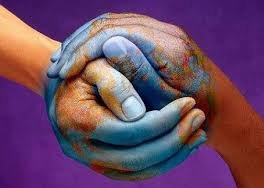 of embracing humanity in its differences and contradictions, if they are capable of embracing the illnesses and wounds of others.
of embracing humanity in its differences and contradictions, if they are capable of embracing the illnesses and wounds of others.
He who is capable of understanding the world as a whole, understanding the complexity of different cultures, feelings and cultural systems, is capable of embracing and sympathizing with the pains of humanity, this is a man-of-the-world.
The provincial is not able to see beyond his village, one can even praise the spirit of apparent peace and delight of those who live in a small world, or in a bubble, but it is from there that the worst prejudices, the worst xenophobia and the inability to see beyond.
If Honoré de Balzac said: in the provinces we live in public, now in the global village we all live in public, each citizen carries a camera that can record everything.
To be a sign of hope in the world, in an increasingly conflictive time, it is necessary to go beyond our own concepts (which are pre-concepts) and understand that the logic of social life has been changing since we started living in a global village, culture enters through TV, radio and social media, and there is no going back, they are here to stay.
The sins and misunderstandings that they gave rise to are not new, they have just become more visible now and we are faced with a society that has difficulty seeing others with respect and understanding.
Those who want freedom are quick to limit it, those who proclaim love do not want the same love outside their bubbles, we do not resolve our difficulties and wounds and at the same time we increase the climate of misunderstanding in humanity.
The great contemporary empires work culturally on these difficulties, hatred of those who are different, intolerance to the culture of others, and thus we feed in microcosm the policy of a growing warmongering that threatens to take over all of humanity.
It has never been so urgent to love one another, there are even those who proclaim it, but for their small village or their provincial bubble.
Medieval empires and the sunset
Roman civilization already existed, but as an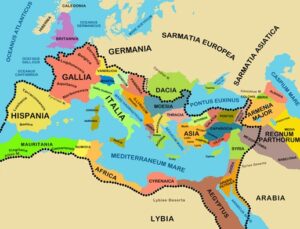 empire it began in 27 BC when the Senate and People of Rome proclaimed Octavian prince, which in the original meaning is “first citizen”, and as such should be venerated and the conquest of different territories.
empire it began in 27 BC when the Senate and People of Rome proclaimed Octavian prince, which in the original meaning is “first citizen”, and as such should be venerated and the conquest of different territories.
The Roman Empire lasted until 476 BC, when Romulus Augustus was dethroned by the Heruli, who were the Germans, but who came from further north and, according to some historians, originated in Scandinavia.
A little-known historical fact is that it was after the death and crucifixion that Rome finally dominated and subjected the Jewish people, the troops of General Titus took the city of Jerusalem on September 8, 70, the Temple that had been built by Solomon (970 BC) is set on fire and the inhabitants are deported as slaves.
In the underground of the Roman Empire there lived several people who, despite being subjected, maintained their culture and spirit, and among these people were the Christians who grew in number and the apostles were esteemed by the entire community.
What connects the people and their own cultures, was the solidarity and the spirit of love that existed between them, unlike what happens today where there is division between the people themselves, the unity between the communities was strong, and the idea of states also grew from the republican vision of Plato and Aristotle, but the imperial vision and wars remained.
If these empires and wars can really be thought of as a dark time, in the monasteries and small agrarian communities where life continued to flourish, both the civilizing process and the preservation of their original cultures, it is also from the end of this period that the Turkish-Ottoman empire , in addition to being one of the longest in history, from 1299 to 1923, a period that included other empires in Europe such as the Carolingian from 800 to 888.
They all suffered decline due to their internal contradictions, the always oppressive and warlike spirit that may seem to be the driving force of history, but it is precisely the opposite, cultures survived despite these desires for submission and oppression of different peoples.
There is always hope and life for those who remain towards human civilization.
Modern empires and work
The beginning of modernity marked a rupture between the practical world, objective of reason, called objective by idealism, and a sensitive world, of love, hope and balanced life, where human nature can express itself and develop, called in an incorrect way of subjectivity (which would be typical of the subject).
between the practical world, objective of reason, called objective by idealism, and a sensitive world, of love, hope and balanced life, where human nature can express itself and develop, called in an incorrect way of subjectivity (which would be typical of the subject).
There were many authors who from the beginning of the 20th century began to question this division of man into vita activa and vita contemplativa, Hannah Arendt and currently Byung Chul Han are the most remembered, however the idea of contemplation comes from antiquity, from Stoics and of some mystics studied in Patristics, such as Gregory of Nazianzus, (329-390) one of the masters of contemplation being cited by Chul Han.
The word work comes from tripalhium, it arises from medieval tortures that allude to removing the “guts” from the continuous effort without rest that will mark the beginning of the industrial revolution until the achievement of the limit of working hours and some minimum laws of respect for life human.
In the Middle Ages, it was in monasteries that the first crafts, cooking techniques (such as sausages made to preserve meat) were born, and also libraries and copyists who began contemplative human work (it is not subjective), such as motto among Benedictine monks: ora et labora (meditate and work).
It is good to remember that the heavy work until the emergence of monasteries was done by “free” men and that many monks had noble origins and went to the monastery to learn how to work and also to read and write because a large part of humanity at that time was illiterate, and the prevention of myopia and hyperopia must also be remembered, as glasses and lenses date back to the end of the middle ages.
After the conception of modern industry and the state, which is also the boss of state-owned companies, monopolies in socialist countries, which are no different in demanding efficiency and maximum effort, imprisoning man in the “vita activa” with no space to be and develop their full life, with space for meditation and leisure.
Already in the English industrial revolution, Gin (which is the pinga in Brazil) moved the maximum capacity of modern industrial slaves deprived of domestic life, leisure and culture.
What the post-industrial, post-modernist society will be is still unknown. For now, the empires want a monopoly on the productive forces to guarantee power over the workforce and not give freedom for full human development, full life is postponed.
The great divine gift that is life and living it in abundance will depend on great changes, empires fight to ensure that this does not happen, although they say it is for freedom.
The great empires in antiquity
There is always a historical and a biblical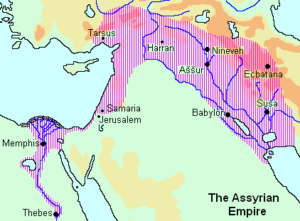 narrative, the dates coincide, but the battles do not.
narrative, the dates coincide, but the battles do not.
One of the great empires of antiquity was Assyria, from the 7th century BC (approximately 721 BC until the 630th century BC. the beginning of its fall, they dominated a large part of Arabia, conquering the Babylonian lands, which dominated the Hebrew people and the Chaldeans, Egypt, the Medes and Elamites.
The biblical narrative focuses mainly on the period of Sargon and Sennacherib (745-661 BC) and it is from this time that the prophet Isaiah narrates the words of Sennacherib to Hezekiah: “this is what you will say to Hezekiah: Thus speaks the great king, the king from Assyria where so much Confidence comes from, the king mocks him for the alliance he had with Egypt and will also conquer that people.
In Isaiah 37, there is the following narrative about the years of suffering, followed by victory, “this year they eat stubble; next year, what is born alone; But in the third year I will plant and you will reap; you will plant vineyards and eat their fruit” and then further on he narrates a battle in which “the angel of the Lord appeared in the Assyrian camp and struck down eighty-five thousand men”, even today a very high number.
What is certain is that in the year 630 BC the Assyrians retreat from Egypt and then from Babylon, which will also dominate the Hebrew lands in Isaiah 39, initially the king of Babylon, Merodach-Baladan, sends messages and gifts to King Hezekiah, who was ill. , but then the prophet Isaiah warns King Hezekiah: “Listen to the word of the Lord of hosts! The time is approaching when everything that is in your palace, everything that your fathers have accumulated until this day, will be taken to Babylon”, and so it happened during the 50 years of the Babylonian exile.]
Who freed the Jews. It was King Darius, who ruled the Persian Empire and who was an enemy of Babylon, through the prophet Daniel, whom he venerated for his prophecies, granted the Jewish people to rebuild their temple and return to their land.
The Persian empire lasted until 330 BC and is well known in official historiography because of the “medical” wars between the Greeks and the Persians, but see that historically the Medes were a people to the east of Assyria, while the Greeks to the west and already on the European continent, it turns out that they were simultaneous in the period from 500 to 448 BC for more than 50 years.
Between wars and challenges, oracles and prophets helped the people to walk through these periods.
The possible historical lesson is that great empires fell due to their pride and oppression, the spiritual lesson is do not let your heart be intimidated, evil dies by its own evil.
The big and the small
In politics, philosophy and even religion the idea of Great is always seen as power.
of Great is always seen as power.
It may seem strange to use the term Great de Sloterdijk when referring to major political, economic and imperialist theories, but it is more appropriate for what he intended to talk about in his book “If Europe Awakens”, little read even in Europe, despite him being recognized as one of the greatest living thinkers.
I would say that being a thinker is already great, using his own term for philosophy, since as he states: “it is not a time for thinking”, we have to choose between dictators and narratives, instead it take the thread of history for a balanced civilization and happy.
Even in the religious world this is confused, Jesus did not proclaim or insist on any political current of his time, despite having the rebellious group on his side, Simon, the Zealot, and Judas Iscariot were zealots, a group that was rebellious to the Roman Empire.
Great empires succumbed and disappeared, one that is forgotten and little analyzed by historians are the Mongols, from the 13th and 19th centuries (see the globe above) being one of the largest in size and today reduced to a small country divided and dominated by China.
Europe has not woken up, Makron said in a dramatic tone last week at the Sorbonne: “Our Europe, today, is mortal. She can die, and that depends solely on our choices!”, the speech is right, but the intention is wrong, because shortly afterwards he talks about nuclear weapons.
The Great in spirituality, in times of despiritualized religions, are narratives around religiosity that talk little or nothing about this Great “megalopath”, as Sloterdijk calls him, but rather about the capacity for solidarity, of true love put into practice, of welcome and seek out the little ones and sufferers who live on the margins of inhumane society.
Francis of Assisi, was the son of Peter Bernardone, a rich and prosperous merchant whose son rejected him, Catherine of Siena was illiterate and her followers wrote wise and holy works for her, she had an influence on the return of Pope Gregory XI from Avignon to Rome, being ambassador of Florence, a city at war with the pope and which she pacified.
The West was experiencing a great schism, and she went with the Pope to Rome, sending numerous letters to princes and cardinals, to promote obedience to Pope Urban VI.
The West was experiencing a great schism, and she went with the Pope to Rome, sending numerous letters to princes and cardinals, to promote obedience to Pope Urban VI (successor).
Small men and small kingdoms made history, see ancient Greece, the Gauls during the Roman Empire, the Great, almost always imperial, warmongering and blind despite a temporary brutal imposition, always succumbed to the legitimate desires of peoples and nations.
Sloterdijk, Peter (2002). Se a Europa despertar. Trad. José Oscar de Almeida Marques. Brazil, São Paulo: Estação Liberdade (in portuguese).
The sense of the big and the new
Presenting something Big and New worthy of the idea does not mean creating something new and forming a bubble with it, it means some minimal sign of originality, it should be noted that the term does not dispense with the origin, and means something that actually brings a positive transformation.
idea does not mean creating something new and forming a bubble with it, it means some minimal sign of originality, it should be noted that the term does not dispense with the origin, and means something that actually brings a positive transformation.
The continent of Old Europe is in crisis, and it is difficult to admit this, and the war does not represent the new but rather the old imperial conquest, the looting of neighboring peoples and the lying narratives that hide imperialism.
Sloterdijk establishes some requirements for a current politician: “Profession: politician. Main residence: opacity. Program: belonging. Moral: small challenge jobs. Passion: having a relationship with the absence of relationship. Evolution: self-recruitment based on knowledge, which becomes initiative” (Sloterdijk, 1999, p. 65).
Perhaps the opacity, lack of transparency and diffuse and even contradictory speeches depending on the occasion are clear, the program is clear, affirmation of one’s personality and the recruitment of equals, morality is not anything that requires challenge, and good morality is not Another thing, often the ability to suffer and give oneself for others and in fact, for the people.
In 1999 Sloterdijk ruled: “it is evident that at a time when the form of the great is changing, pathologies of affiliation of all kinds become epidemic… the oldest state athletics has already had to deal with the limits of its power of generalization…” (page 66).
In the book “The new science of networks” Laszlo Barabasi writes a very important example, without the persecutor of Christians Saul, who, after having a mystical experience, leaves the Jewish bubble and goes to the Greek and then the Roman world, Christianity would still be today a sect, and today he seems to return to it for lack of an open spirit.
Saul, now Paul will not fight on the front lines of the empire but rather bring a new spirit to the Roman imperial kingdom and will be persecuted by this spirit and not for using any type of weapon, and announce the kingdom of peace.
In Acts of the Apostles 9:31, after a re-presentation of Paul to the Christian community that feared him, it is said: “The Church, however, lived in peace throughout Judea, Galilee and Samaria”, and finally Paul fights the good fight: without wars, accusations or intolerance.
The return to the nations and the absence of the Whole
In a time of hypercommunication, social media makes one feel the absence of the Whole, which Peter Sloterdijk calls the Big: “the form of the big in the industrial world insists on the well-known megalopathic stress in expanded dimensions – but then the people on the street must worry, who previously would have supported a Minister of Foreign Affairs” (Sloterdijk, 1999, p. 61), what he did not imagine was that this would have the opposite reaction: the return of patriotism.
makes one feel the absence of the Whole, which Peter Sloterdijk calls the Big: “the form of the big in the industrial world insists on the well-known megalopathic stress in expanded dimensions – but then the people on the street must worry, who previously would have supported a Minister of Foreign Affairs” (Sloterdijk, 1999, p. 61), what he did not imagine was that this would have the opposite reaction: the return of patriotism.
However, only unexpected forces realized this effect, while today’s society: “suffering bouts of nausea in the face of its political class, at the moment cannot do more than grant a pause for reflection on fundamental questions” (p. 62).
The author notices the lack of “something”, the emphasis is his, but prefers to “interpret it as the spirit of the agrarian age” and the great empires (pg. 60), and in his agnostic vision, “for her came the critical moment with the “death of God” “ (idem), again the emphasis is on the author.
Thus in the absence of an eschatological figure, in a world that rejects the idea of the sacred, the divine and a human-divine God of Christians, “the form of the Great is changed, filiation pathologies of all kinds become epidemic” (pg . 66), not only in politics, but also in religion, everyone believes they have found a “great one” and heretically places him in the place of God, even in religions an imaginary god of wealth, leisure and even lust, however contradictory it may be. as it may seem.
The book from the end of the last millennium, understands the problem right but in the wrong place, under the theme of “conservative revolution” (a new highlight from the author) it is experienced “two or three generations ago in the Catholic resistance movements in central Europe and the south, probably a great intercultural career ahead – under a religious, culturalist, regionalist banner” (pg. 67).
Returns to a correct analysis: “in the Great modern – the quasi-religious state-national identities that since the 19th century have marked political forms of life in Europe and later throughout the world” (idem), remember Nazism and now in several forms of “national” wars.
The modern phenomenon of this Great One, of the great homeland whether in Israel or Russia, in China or the USA, is nothing other than the absence of a Great Greater, the divine one that leads men to break borders, to live with what is different and to understand the need for a new civilization that sees the planet as a Homeland.
For the great religious man, one may ask where God is, but the divine-historical figure of Jesus and his beyond-Abrahamic vision that surpasses that of these conflicting peoples, proclaimed a universal motto: “Whoever has seen Me has seen Him who sent Me ” (John 12:45).
Hyperpolitics and war
When Peter Sloterdijk wrote “All in the same 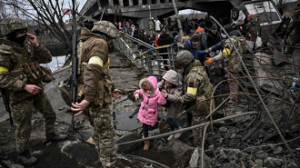 boat: essay on hyperpolitics” we were on the threshold of the third millennium, Manuel Castells was writing Sociedade em Rede and Edgar Morin was writing about Cabeça Bem done, rethinking reform, reforming thought, they were attempts to wake up and make humanity move towards a less dark future.
boat: essay on hyperpolitics” we were on the threshold of the third millennium, Manuel Castells was writing Sociedade em Rede and Edgar Morin was writing about Cabeça Bem done, rethinking reform, reforming thought, they were attempts to wake up and make humanity move towards a less dark future.
Sloterdijk also wrote “If Europe awakens”, he calls it the Empire of the Center and pays attention to its colonialist past and the need for a new future and rethinks war, a topic so linked in the country that triggered the Second World War.
These are all thoughts that tried to redirect a dark future from the possibility of a new war. In Everyone in the Same Boat, Peter Sloterdijk revisits the political project that was born in classical antiquity, the attempt to organize the State, and says: “How can they “talk” to such large numbers of people and convince them to feel like they are participating in what is “great” – until they reach the willingness to face death in exercises of millions against forces of equal order of magnitude, in order to assure “their own “successors what ideologues call the future” (Sloterdijk, 1999, p. 31).
Contrary to the optimism of Castells and Morin, not only justifiable, but desirable, of a more civilized and humane future, Sloterdijk warns that this connected hypersphere, see that social media were just nascent for these three great thinkers, was for the German, a dangerous future of hyperpolitics.
“The first gestures of this instinctive holism are attempts to describe the cosmos as a larger house and people as larger families” (Slotertijk, p. 32), and adds that in fact, “homo politicus and homo methaphysicus belong together historically; promoters of the State and prospectors of God are evolutionary twins” (Sloterijk, p. 33), of course it is not the view of everyone, much less of men in power, the great statesmen who think in this holism no longer exist and now it is the empire of force and monolithic, authoritarian and hateful thinking.
The Greeks’ political project for him can be called “metallomaniac”, but he warns that this is the man who “meddles in big, bigger issues to have something that he will look at and then abandon. But should they call those who, once they have grasped great things, will never abandon them? I propose megalopaths” (page 34).
Also great empires: the Persian, the Roman, the Mongols who came to dominate half of Europe, the Turkish-Ottoman and more recently Napoleon and the “forgotten” colonies in Africa that were nothing more than an extension of the Central Empire, as Sloterdijk calls it the Europe.
“State Humanism has since been the search for a fair center – and since the Roman reception of this Greek idea, this search has carried its name still known today: Humanity” (pages 35-36).
Sloterdijk questions this model of homo politicus, the “pontifex maximus”, “how do we become raja? How do we become Caesar? How do we become consul, senator, emperor? How must someone live to enter the history books like Metternich, Lord Morlborough or Bismark? (page 37).
The idea of politics as metanoia, this was the initial intention of Paideia for example, is no longer true in war, Sloterdijk quotes Goethe: “the man who does not suffer scourges cannot be educated”.

